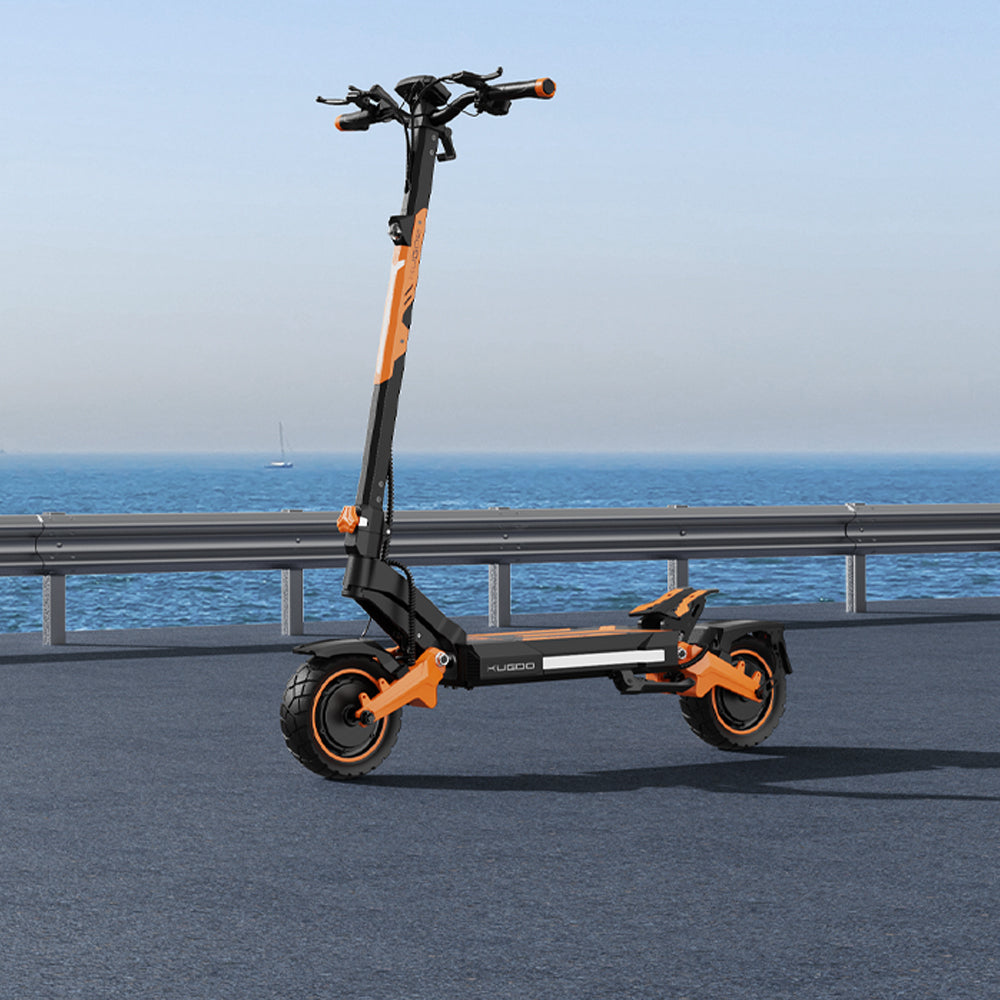Electric scooters have transformed urban commuting, presenting a green and practical solution for navigating city streets. A critical element influencing the performance and ride comfort of electric scooters is the type of tires they utilize. This blog post delves into the ongoing debate surrounding electric scooter wheels: solid tires versus pneumatic tires. We'll explore the advantages and disadvantages of each option, aiding you in making a well-informed decision when selecting the right tires for your electric scooter.

Solid tires, true to their name, are crafted from solid rubber or other durable materials. They eliminate the need for inflation and are essentially puncture-proof. On the flip side, pneumatic tires resemble those found on bicycles and cars, being filled with air and featuring a flexible outer casing. Let's examine the pros and cons of both solid and pneumatic tires for electric scooters.
Maintenance:
Solid tires are virtually maintenance-free, sparing you the hassle of checking air pressure, inflating tires, or dealing with punctures. This convenience makes them ideal for daily use. In contrast, pneumatic tires demand regular maintenance, involving the monitoring and adjustment of tire pressure, and are prone to flats and punctures, which can be inconvenient.
Puncture Resistance:
Solid tires stand strong against flats and punctures, ensuring you can confidently ride without the fear of being stranded due to a damaged tire. On the other hand, pneumatic tires are more susceptible to punctures, potentially requiring tire repair or replacement and causing downtime.
Durability:
Solid tires outshine pneumatic tires in terms of durability, boasting a longer lifespan and the ability to withstand rough road conditions for thousands of miles. Conversely, pneumatic tires are generally less durable, especially if frequently exposed to rough or debris-strewn roads.
Consistency:
Solid tires offer consistent performance by maintaining stable air pressure, resulting in a reliable ride quality.
Ride Comfort:
Solid tires provide a harsher ride compared to pneumatic tires. The absence of cushioning puts more stress on the scooter's frame and your body, especially on uneven surfaces. In contrast, pneumatic tires offer a smoother and more comfortable ride, absorbing shocks and vibrations for an enjoyable journey, particularly on bumpy roads.
Traction:
Pneumatic tires outperform solid tires in terms of traction, especially on wet or slippery surfaces, enhancing safety during rides.
Customization:
Pneumatic tires allow for customization by adjusting tire pressure. Lower pressure increases shock absorption, while higher pressure improves speed and efficiency.

When deciding between solid and pneumatic tires for your electric scooter, consider the following factors:
Usage:
Solid tires are convenient for commuting on well-maintained roads, while pneumatic tires are preferable for those navigating rough terrain or seeking a smoother ride.
Maintenance Preference:
Evaluate your willingness to invest time and effort in maintenance. If you prefer a low-maintenance option, solid tires might be the better choice.
Comfort vs. Convenience:
Consider whether you are willing to sacrifice some ride comfort for the convenience of not dealing with flat tires and regular maintenance. Let your personal preference guide your decision.
Terrain:
Local terrain and weather conditions should influence your choice. Pneumatic tires are better suited for wet or uneven surfaces.
In conclusion, the decision between solid and pneumatic tires for your electric scooter boils down to your individual needs and preferences. Solid tires offer convenience and durability, while pneumatic tires provide a smoother and more comfortable ride. Understanding the pros and cons of each type will empower you to make an informed decision that enhances your electric scooter experience. Consider your local conditions, and how you plan to use your scooter, and choose the tires that align with your priorities.




Leave a comment
This site is protected by hCaptcha and the hCaptcha Privacy Policy and Terms of Service apply.